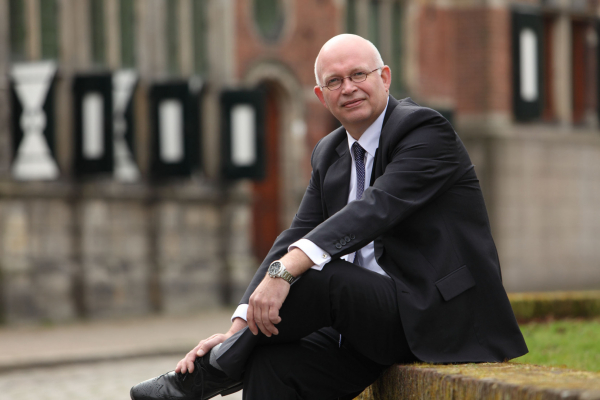Organic farming in Groningen is expanding. Henk Staghouwer has given the sector a push in the right direction.

When he was re-elected as a member of the provincial executive with responsibility for agriculture three years ago, provincial representative Henk Staghouwer (Member of the Executive Council of the Province of Groningen, The Netherlands) set himself the task of giving organic farming a push in the right direction. Two years after the province launched its programme, it is bearing fruit. Ten farms are currently making the transition from conventional to organic farming. 400 hectares of land are being converted. This will increase the land area used for organic farming by around 10% compared with 2016.
Henk Staghouwer: "I had noticed that the sector was looking for other ways of earning a living. After the war, the aim was simply to produce as much food as possible. But over the last ten years people have begun to ask questions about agriculture: about large-scale farming, soil exhaustion, the use of artificial fertilisers and plant protection products, food safety etc. This was what motivated me to take a different approach to agriculture. With my background as an entrepreneur, I also saw the potential of organic farming. The global market for organic products is growing by 12 to 13% per year. And I thought: This must be an opportunity for Groningen".
A visit in February 2017 to the world's largest organic produce trade fair, Biofach in Nuremberg, confirmed him in his belief. "In the past the organic sector perhaps tended to think too idealistically and not enough in entrepreneurial terms. But there I realised that it is now a grown-up sector. It is not all sandals and nut cutlets - it is actually a hard-headed business."
The province hired agricultural advisers to lead the project on the ground. Mr Staghouwer said: "At the beginning, the idea was to raise awareness. Farmers were very receptive. Five or ten years ago things might have been different. But they themselves know very well that something has to change. After three information evenings there were already 120 expressions of interest. This was followed up with 40 visits to interested farmers.
Currently, there are five study groups (three on arable farming and two on dairy farming), where farmers exchange information and experience. They can also call in experts.
Mr Staghouwer: "The aim is to provide them with information that they did not get at agricultural college or training centre. There it is mostly about production, production and more production. For most farmers it is about a new way of working."
Mr Staghouwer does not want to predict where the project will ultimately lead. There are now contacts with organic farmers, producers and processors on the German side of the border, aimed at establishing a single area for cultivation and sales. One idea, for example, is to set up a joint organic dairy.
"I don't have the funds available to finance any plans of this kind that may emerge. But I would welcome them. The time has gone when you could simply send your harvest off to market somewhere and move on. Consumers want to know where their food comes from. And so it is a good thing if you can sell your products in your own area. If we set up our own circuit, we will do just fine."
He hopes that the rise of organic farming will also influence farmers using conventional methods, inter alia, by drawing attention to the kind of natural farming methods that Groningen also wants to promote. "Of course, it would be a good thing if conventional agriculture also reduced the amount of plant protection products it uses."
Henk Staghouwer is a Member of the ECR Group in the European Committee of the Regions, where he participates in the work of the Committee on Natural Resources (NAT). He was the ECR Group Shadow Rapporteur on the CoR opinion on "the Common Agricultural Policy post-2020".

